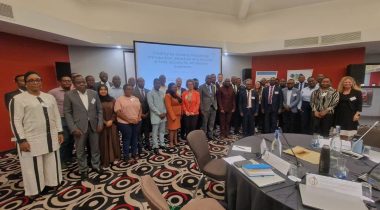
Nick Shaxson ■ The G20/OECD BEPS Project on corporate tax: a scorecard

 In 2013 the G20 world leaders mandated the OECD, a club of rich countries, for its Base Erosion and Profit Shifting (BEPS) project to produce reforms of international tax rules that would ensure that multinational enterprises could be taxed ‘where economic activities take place and where value is created’, and that developing countries should also be able to benefit. (We have written about this many times, here.)
In 2013 the G20 world leaders mandated the OECD, a club of rich countries, for its Base Erosion and Profit Shifting (BEPS) project to produce reforms of international tax rules that would ensure that multinational enterprises could be taxed ‘where economic activities take place and where value is created’, and that developing countries should also be able to benefit. (We have written about this many times, here.)
Now the Global Alliance for Tax Justice (GATJ) has issued a statement, timed to co-incide with the C20 meetings in Turkey.
Its key points are:
- Although the Organisation for Economic Co-operation and Development (OECD) has extended participation in this work to all G20 countries, and more recently some other developing countries and regional tax administration networks, it cannot substitute for a truly inclusive global tax body. While important developing country members of the G20, such as India, have demanded such an institution, at the Third International Conference on Financing for Development (FFD3) held in Ethiopia in July 2015, key OECD countries vetoed proposals from developing countries to create a global tax body.
Reform is long overdue not only to the institutional framework but also to the existing global taxation rules, which are now over 80 years old. The fundamental flaw of these rules is that they have been interpreted to require taxation of MNEs as if their various constituent entities are independent of each other and dealing ‘at arm’s length’. This creates a perverse incentive to create complex and fragmented corporate structures, locating affiliates in convenient jurisdictions to minimise tax; MNEs now consist of often hundreds of such entities. The G20 mandate implied a new approach, but the OECD refused to make it explicit. The result is a patch-up approach that will make international tax rules even more complex, and will largely retain the scope for countries to offer tax breaks.
- The one limited success is country-by-country reporting [TJN: but also see our concerns here].
Read the whole GATJ document here, or in pdf form here.
Note: the BEPS Monitoring Group, a civil society umbrella grouping led by TJN Senior Adviser Sol Picciotto, will be producing a more detailed critique soon.
Related articles
One-page policy briefs: ABC policy reforms and human rights in the UN tax convention

Bad Medicine: A Clear Prescription = tax transparency
The millionaire exodus myth
10 June 2025

The Financial Secrecy Index, a cherished tool for policy research across the globe

Lessons from Australia: Let the sunshine in!

Strengthening Africa’s tax governance: reflections on the Lusaka country by country reporting workshop

Do it like a tax haven: deny 24,000 children an education to send 2 to school
The State of Tax Justice 2024

Indicator deep dive: Public country by country reporting


